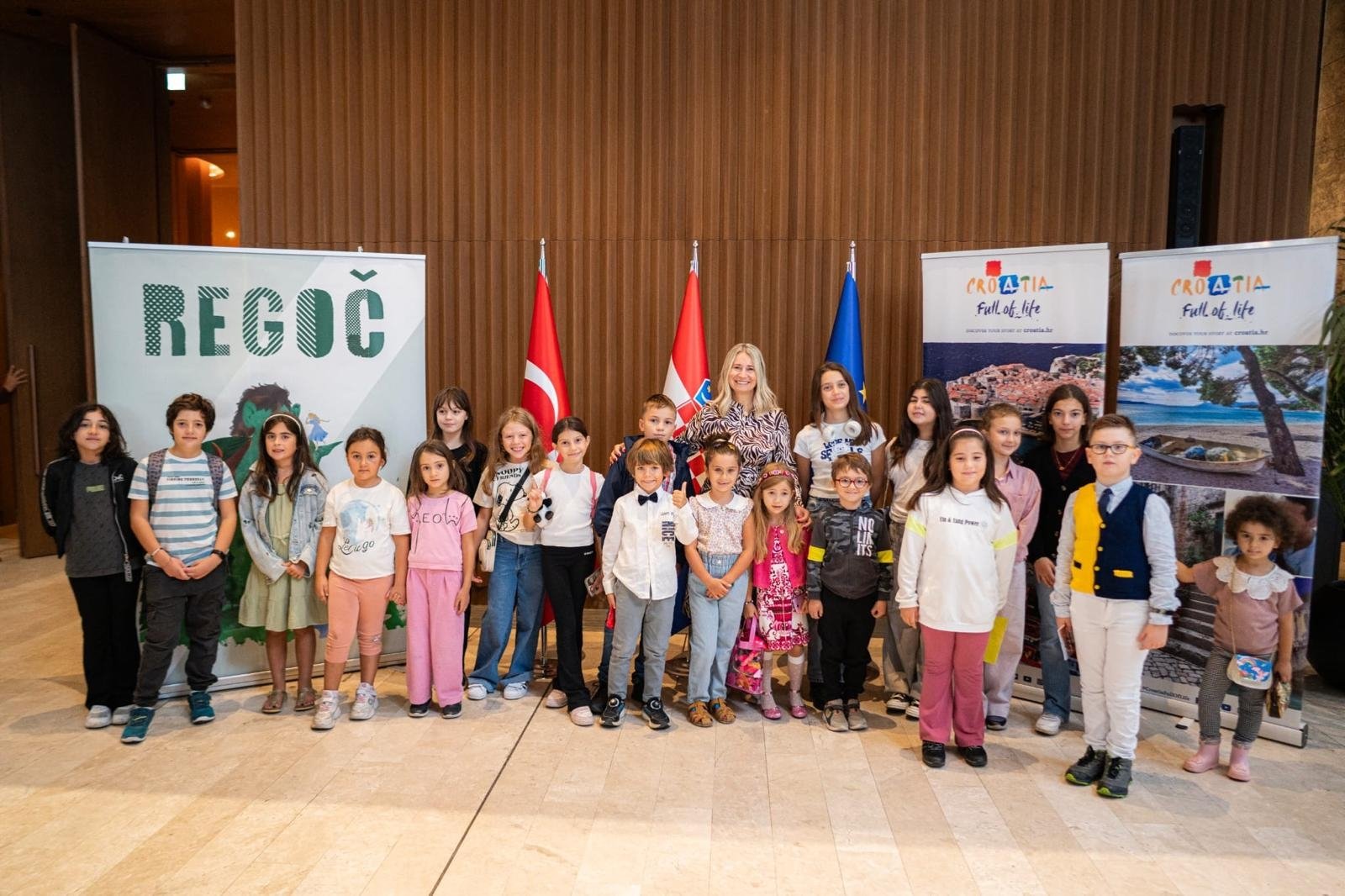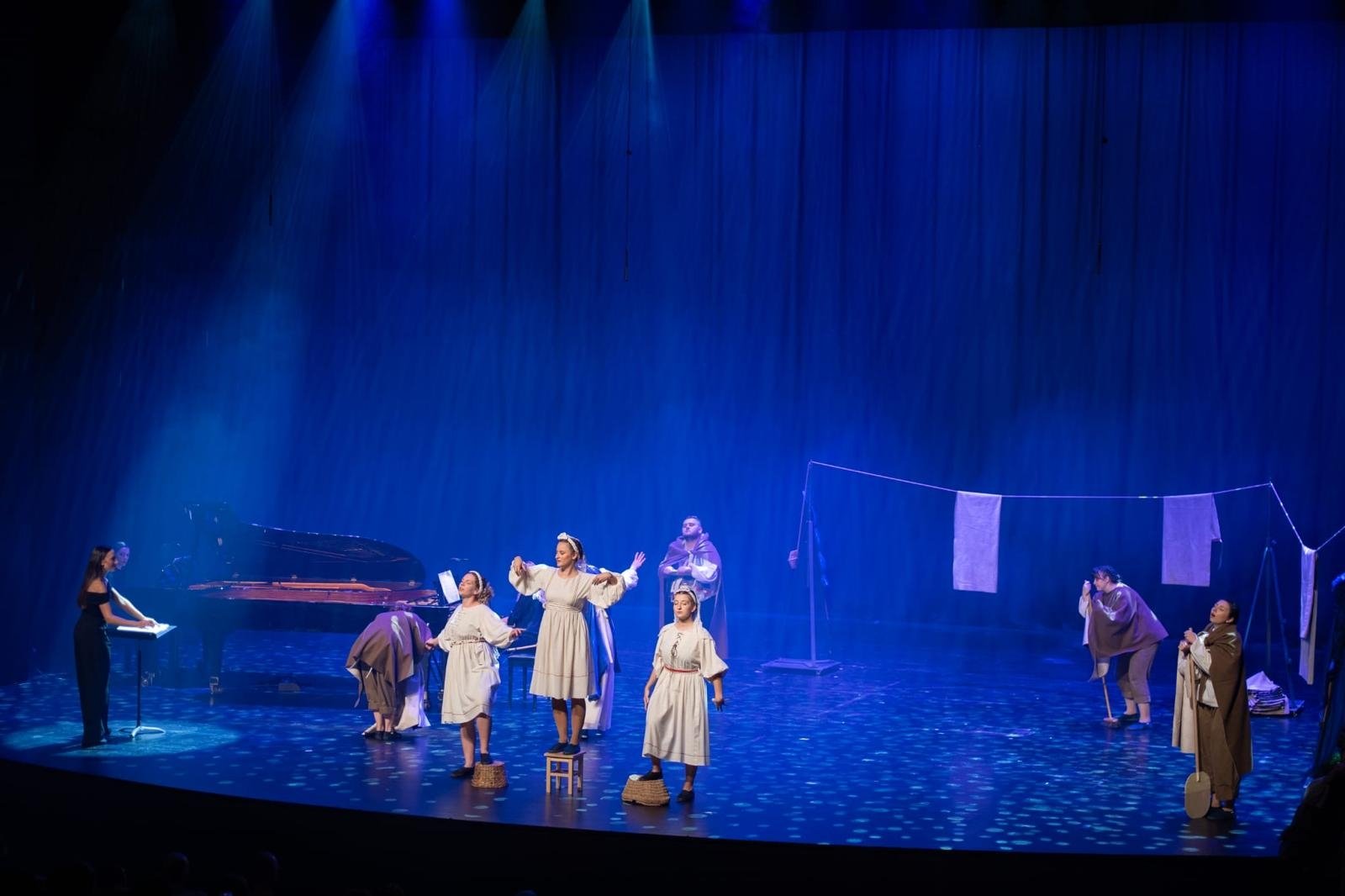© Turkuvaz Haberleşme ve Yayıncılık 2024
The Consulate General of the Republic of Croatia in Istanbul organized the Croatian Children's Literature Festival in Istanbul to commemorate the 150th anniversary of the birth of renowned Croatian author Ivana Brlic-Mazuranic.
One of the festival’s highlights occurred on Saturday when the Croatian opera Regoc was performed at the Taksim Atatürk Cultural Center. This opera, designed for both children and adults, is based on Ivana Brlic-Mazuranic's famous story "Regoc." The performance was held under the patronage of the Ministry of Foreign and European Affairs of the Republic of Croatia, with support from the Croatian Consulate General in Istanbul. Composed by Kresimir Klaric and directed by Kristina Grubisa, the opera was brought to life by the Euterpa Art Organization.

The tale of Regochas has deep roots in Croatian oral storytelling traditions. Though it was first written more than a century ago in "Croatian Tales of Long Ago," its timeless themes of friendship, courage and solidarity have resonated through generations, continuing to inspire readers and audiences alike. This adaptation into an opera represents a significant step in promoting Croatian literature through music and the performing arts. Through characters like Kosjenka and Regoc, Brlic-Mazuranic explored complex human emotions and universal themes, creating a captivating foundation for an opera that charmed audiences, particularly younger viewers.
The opera beautifully revives the feelings of childhood, evoking a sense of innocence, friendship and the strong bonds we share with loved ones. In a world that can often feel chaotic and harsh, this performance serves as a poignant reminder of the pure emotions we sometimes overlook. Through its enchanting music and storytelling, "Regoc" reconnects us with those cherished feelings, inviting audiences to reflect on the importance of nurturing our relationships and appreciating the simple joys of life.
Before the opera, I had the opportunity to interview Ivana Zerec, the Consul General of Croatia in Istanbul. She began by expressing her admiration for Ivana Brlic-Mazuranic, noting that she is one of Croatia's most beloved authors, known for writing stories that appeal to both children and adults.
Zerec highlighted how Brlic-Mazuranic’s works continue to inspire people of all ages, emphasizing that her stories promote messages of peace, cooperation and the acceptance of diversity, which unite us all.

When I asked Zerec about the various events planned to celebrate the author’s legacy, she explained: "This year, we decided to commemorate the 150th anniversary of Ivana Brlic-Mazuranic's birth. We held a presentation of her works at Istanbul University, and this is our second event for both children and adults. We hope to organize another event later this year, especially as some of her books have been translated into Turkish and have become increasingly popular among Turkish readers."
Regarding her feelings about seeing Brlic-Mazuranic’s story performed at the Atatürk Cultural Center, Zerec shared her emotions, saying that she grew up reading Brlic-Mazuranic’s stories, particularly "Regoc."
She added, "As a child, I could never have imagined that one day we would bring such an important story to life in a place as significant as the Atatürk Cultural Center, the heart of art in Istanbul."
She also mentioned how emotional she felt seeing so many children in the audience, reflecting on how in Croatia it’s a tradition for families to take their children to the opera on weekends.
I asked Zerec about the consulate’s plans to further enhance Croatia’s presence in Türkiye, especially in Istanbul. "We organize a lot of cultural events," she explained. "While this is our first event at the Atatürk Cultural Center, we regularly collaborate with Istanbul University, holding seminars, workshops and concerts. Many of our concerts take place at the Pera Palace Hotel, which shares historical ties with the Croatian Esplanade Hotel along the route of the Orient Express. It’s a journey through time, art and culture that connects our two nations. Croatia and Türkiye are very friendly countries, with no outstanding political issues and we cooperate bilaterally in cultural fields."
We also discussed the cultural similarities between our two countries. Zerec noted that Croatian people enjoy drinking Turkish coffee and emphasized the frequent flights between Türkiye and Croatia. She expressed her desire for more student exchanges between the two nations, explaining: "Croatia has been a member of the European Union for 10 years, and with our recent entry into the Schengen area and the eurozone, students who come to Croatia for university can travel across Europe. We would love to see more Turkish students studying in Croatia."
Zerec concluded by saying that Croatian interest in learning Turkish is growing, thanks to the popularity of Turkish dramas and the increasing number of Croatians traveling to Türkiye.
